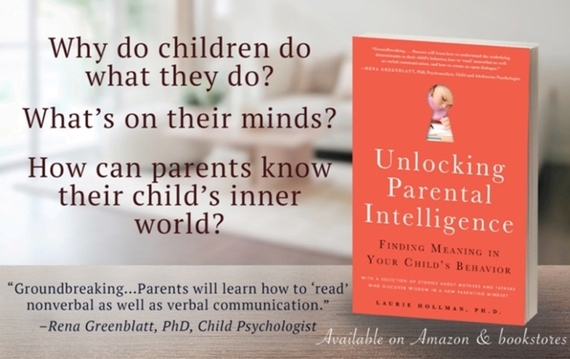Some children do not react to disappointments and frustrations with words. They scream sometimes about what they want yet other times without obvious content. When this becomes a pattern, it's essential for parents to know how to react and cope to lead the child to being able to voice their discontent.
First, we must ask, "Why the screaming?" Only then can we decide what to do about it. If we take the position that it is a communication then it is a relationship problem. Somehow, for some important reasons, the child does not know how to communicate with the care taking adult in other expressive manners.
Here are some questions for parents to ask themselves at the start:
1.Is there a lot of adult screaming in the house?
2.Are routines and daily caretakers inconsistent so the child feels scattered and unsure about who is taking care of them, when, and for how long?
3.Is there little or no conversation in the house between parent and child?
4.Are the parents both working with difficult schedules causing a huge amount of stress and endurance?
5.Are there many siblings, so no one child gets the attention needed to talk about what's on their minds?
6.Do parents in fact ever try to know their child's thoughts, opinions, intentions, imaginings? That is, do the parents know on a daily basis what's on their child's mind at different points of the day?
If you find you are answering yes to any of these questions, they could be a big clue to why there is screaming. The child feels disorganized and insecure. They have not learned by example how to express their thoughts or learned how to soothe themselves when disappointed.
Ten Remedies to the Screaming Pattern
1.At the time of the screaming, change the environment. If the child is young, simply remove them from their current location so you and they can find some calm and perspective. If the child is older, politely and quietly tell them to leave the room until they calm down and then you will have a discussion. Clearly any of these directions must be given in a contained quiet tone of voice. Yelling at a yeller fails.
2.Revamp your routines or lack of them. Make them very clear and certain. At first it's important not even to be flexible until the daily routines of eating, sleeping, going to school, doing homework, extra-curricular activities, are in place. Discuss these routines with your child and get their input. Then hang a sign that specifies when each item occurs.
3.Monitor your reactions. If your child is screaming, it's important for you to be calm on the outside even if you are shaken on the inside. You want to avoid a battle of wills by quietly taking charge of the situation. Children are generally scared when they are screaming, not only angry which is the common view.
4.Begin to talk in even tones even when something upsets you greatly. Set the example of talking not yelling when something goes awry.
5.Spend non-contentious quiet time with your child. Learn what they are thinking about. This can be for 5 minutes at a time or an hour, but be very attentive and nonjudgmental. Your task is to get to know them better.
6.Start using feeling language such as happy, sad, angry, upset, disappointed, frustrated. Express yourself this way and your children will follow suit. Just saying, "use words" doesn't help if they don't have the vocabulary to express themselves.
7.Consider a behavior like screaming a communication of some kind. Your task is to eventually decode the message. If you don't understand a problem, how can you know how to respond?
8.Avoid rewards and punishments. Instead make your lives revolve around conversations. Find out what your child is feeling and thinking about and let them know what's on your mind, too.
9. Not reacting immediately, but waiting to understand the meaning behind the screaming may seem counter-intuitive if you've learned there must be immediate consequences for behavior. But if you don't understand the message being sent, the consequences will not be understood, may produce more resentment, and ultimately will fail to eliminate screaming as a primary way of communicating.
10. The parent's job is to understand the child's thoughts, opinions, wishes, and beliefs. That doesn't mean agreeing with them, but hearing them and promoting discussions. Only then will screaming be a thing of the past.

Laurie Hollman, Ph.D., is a psychoanalyst and author of Unlocking Parental Intelligence: Finding Meaning in Your Child's Behavior found on Amazon, Barnes and Noble, Familius and wherever books are sold.